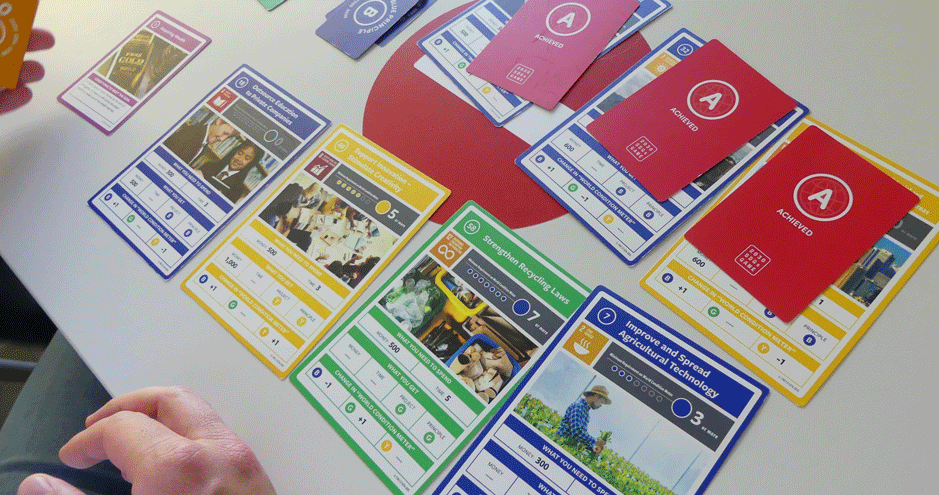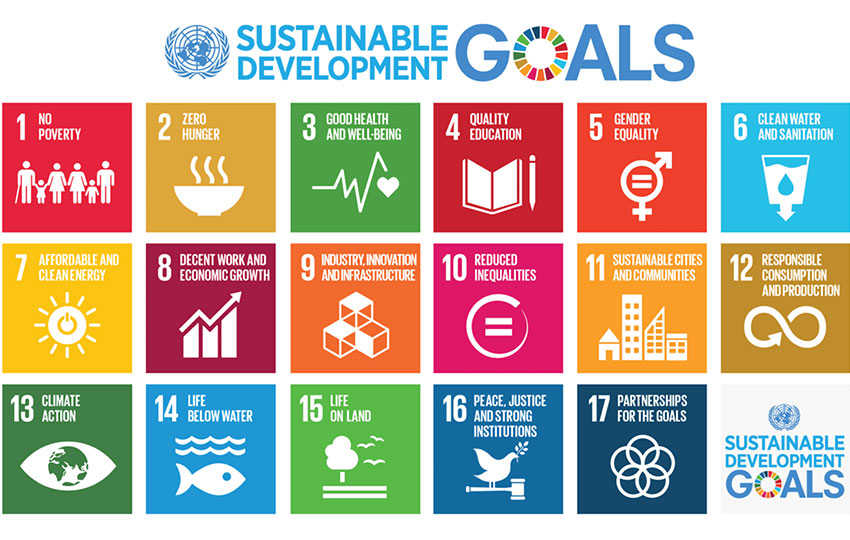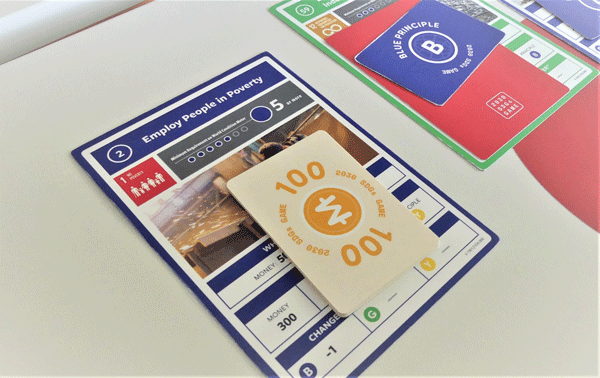Teaching “Sustainable Development Goals” Game at HEC Paris to train our leaders
The 2030 Sustainable Development Goals (SDGs) game is taught at HEC Paris. Also known as the Global Goals, the 193 member states of the United Nations agreed in 2015 to achieve them before 2030. The SDGs are a plan of action consisting of 17 goals and 169 concrete targets to end poverty, protect the planet and ensure prosperity for all as part of a new sustainable development agenda. In this interview, Georg Wernicke, Assistant Professor at the Strategy and Business Policy Department, explains the stakes of this game for our leaders and future leaders to understand and address social and environmental issues.

Can you explain the 2030 SDGs game and its advantages?
Georg Wernicke: This game is a multiplayer card-based game that simulates taking the “real world” into 2030. The idea behind the game is simple but super powerful. The SDGs are ambitious and can seem overwhelming only due to their volume and scope. While dramatic in their potential impact on the world, approaching them can be daunting.
A game approach to introducing the SDGs has three powerful advantages. First, it gives people a direct experience of participating in co-creating a sustainable world. In other words, it lets them experience the “I can do it” and “what I do makes a difference.” Second, it simplifies a complex issue and makes it accessible while stimulating our curiosity to learn more. Third, it activates players’ will to set their aim toward a worthy goal, simultaneously building confidence and making it enjoyable. It hence inspires and motivates them to take action in the real world.
The game’s purpose is not to provide participants with detailed theoretical knowledge about the 17 SDGs and/or the 169 targets. Instead, it intends to create awareness, especially about two things: first, to have a clear understanding of why our world needs the SDGs now. Second, to experience what possibilities the SDGs bring to the world. Hence, participants gain an experiential understanding (rather than a theoretical understanding) of the SDGs’ essence through playing the game.
Why did you want to teach this at HEC Paris?
Sustainability is dear to my heart, I made it a focus of my research, and I try to include it in my teaching whenever possible. The SDGs are about the big issues our world faces, such as poverty, climate change, urbanization, sustainable economic growth, diversity and inclusion. I am deeply impressed by how eager our students are to engage with the subject, and I am happy to see the many new initiatives introduced at HEC that speak to these topics (like the new purposeful leadership program facilitated by HEC’s S&O (Society and Organizations) Institute or the climate map workshops).
Nevertheless, I was looking for an experiential tool that would allow students to drive outcomes and to experience the SDGs themselves.
Which students are involved in this game at HEC Paris?
The specialized master programs in Strategic Management, Accounting and Financial Management, and the Sustainability and Social Innovation program introduced the game. For these programs, we use the game during the Welcome week. For students in the CEMS program, I will facilitate the game as part of a multiple-day course. For MBA students in the “Sustainable & Disruptive Innovation” specialization, we included the game in the specialization’s capstone course. There are some signals of interest from the executive programs and customized programs, but due to the COVID-19 crisis, these have unfortunately been put on hold.
In Japan, where the game was developed, it is used in schools, universities. But it is also frequently played during workshops with top managers, including CEOs. If I can voice a dream, I hope HEC Paris makes this experience available to all our students, whether they are in the Grande Ecole, specialized Masters, MBA, EMBA or participants in our customized programs.
What was your experience facilitating the game at HEC Paris?
My experience facilitating the game at HEC Paris was genuinely fantastic. Because of the health crisis, we had less than perfect circumstances. I would have preferred to hold the game in the vast Hall d’Honneur so that we could spread out students over a large area. Also, the game is highly interactive. So on top of facilitating the game, part of my job became to make sure we keep respecting the social distancing rules. But regardless of the circumstances, students enjoyed it, and the feedback has been extremely positive. I saw students standing on chairs, one even on a table, to foster coordination between teams. When we debriefed the game experience, I was impressed by the level and depths of reflection we achieved. It was amazing to see different conclusions and ideas about addressing the SDGs evolving from the participants. I look forward to facilitating the 2030 SDGs Game at HEC Paris again. The sooner, the better!

